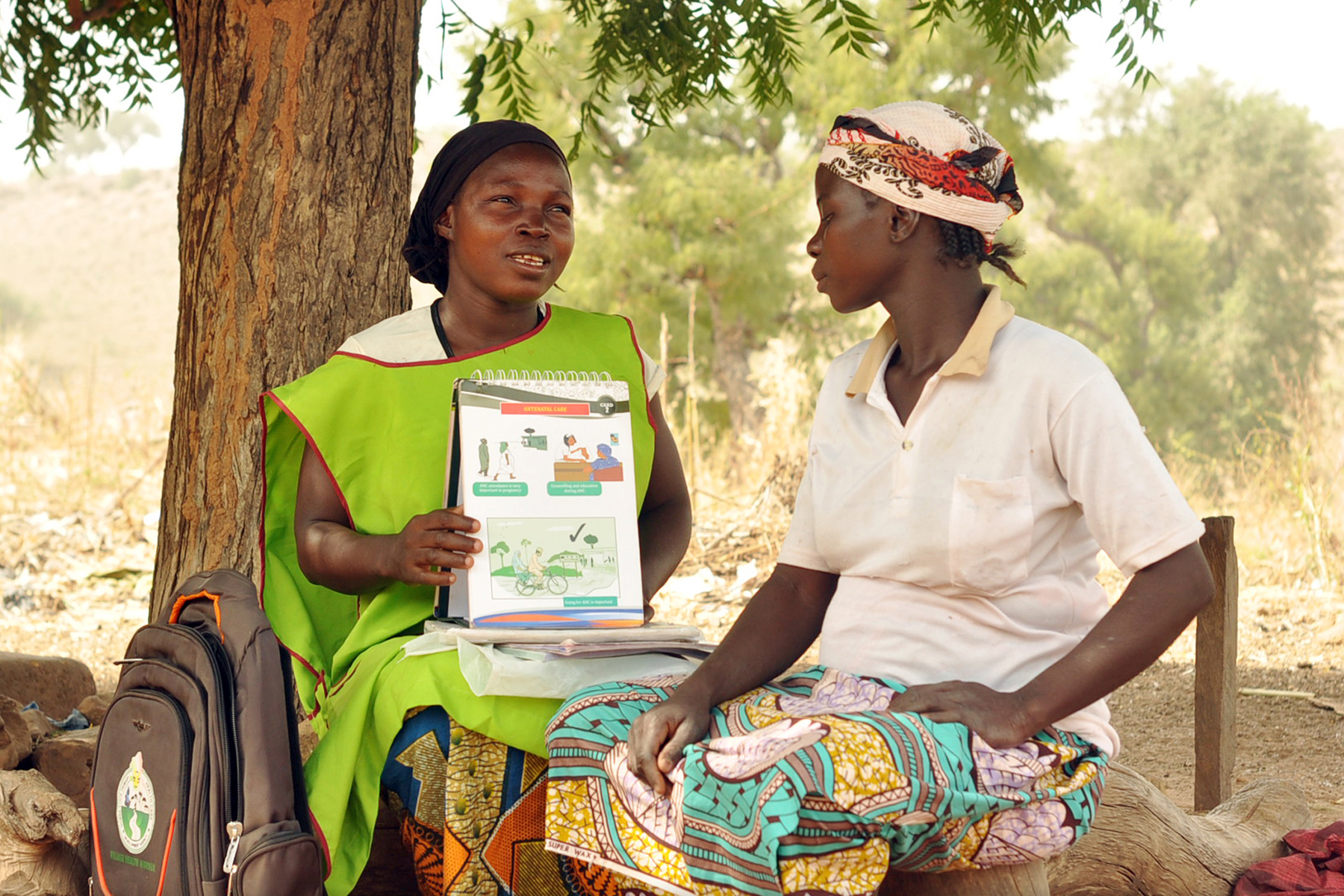Case study: Village Health Worker scheme in Gombe, northeast Nigeria
The Village Health Worker scheme was set up to deliver maternal, newborn and child health information to communities, linking communities to healthcare by training women from those communities known as ‘village health workers’. Our study revealed the six key steps that ensured the scheme was sustained by the Gombe state government:
1: The scheme was government-led and owned, with support from the civil society implementer and donor: a built-in phased ‘seamless transition’ meant responsibility for implementation and financing progressively shifted to government.
2: The scheme’s ‘adaptive management process’ involved planned reflection points and adapting the design when necessary.
3: Village Health Workers were motivated through strong supervision, by generous stipends, maternity leave and the acceptance and gratitude of communities.
4: Efforts to secure longer-term financial resources included advocating for sympathetic state politicians’ support and building a line-item for the scheme into the state health budget.
5: Considerable efforts were made to ensure the scheme was well institutionalised within the existing health system.
6: Efforts were made to foster community ownership and acceptance through key community structures known as Ward Development Committees.
All Fostering Innovation Sustainability related outputs can be found under Resources by selecting that theme from Research Areas.